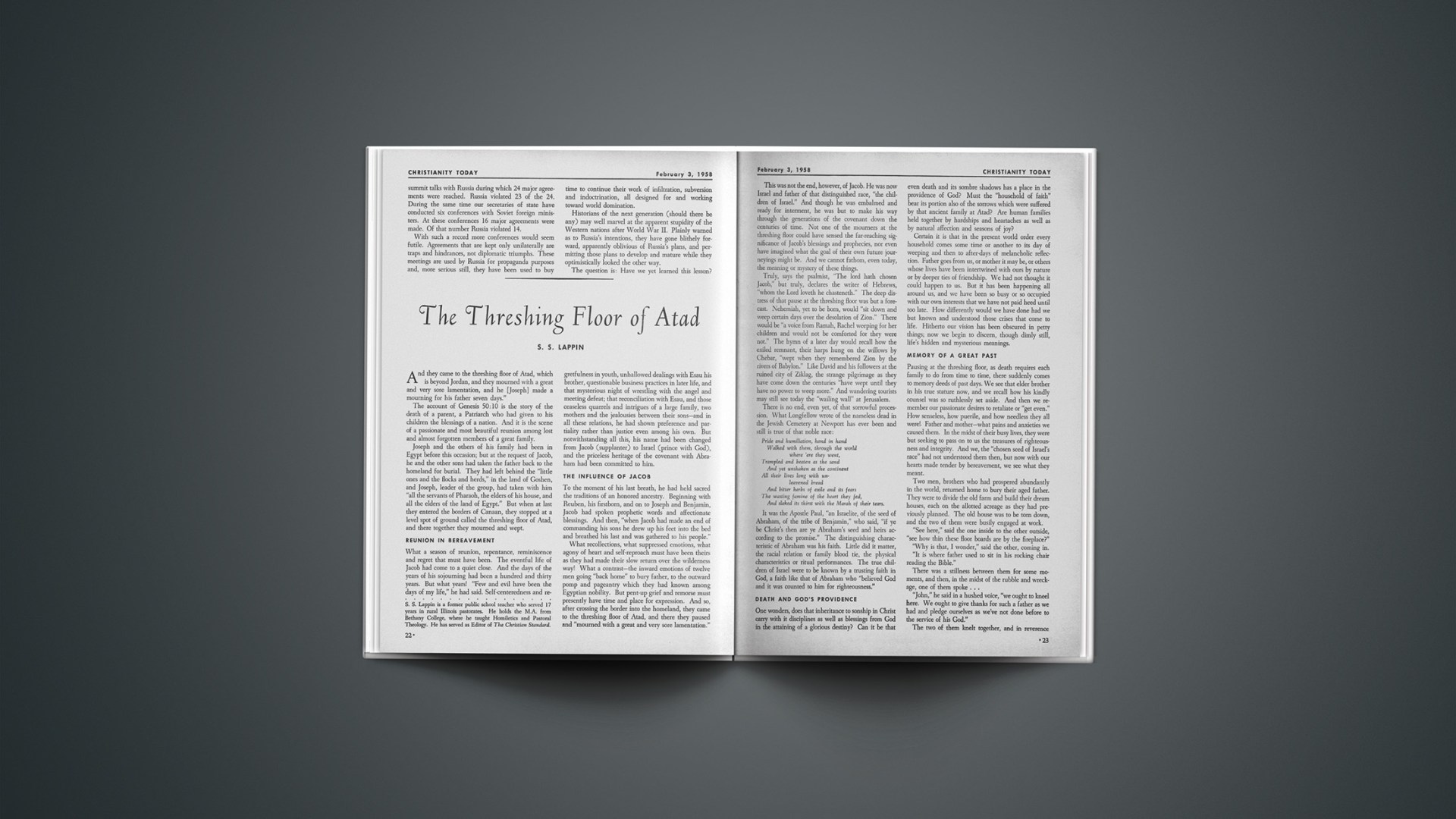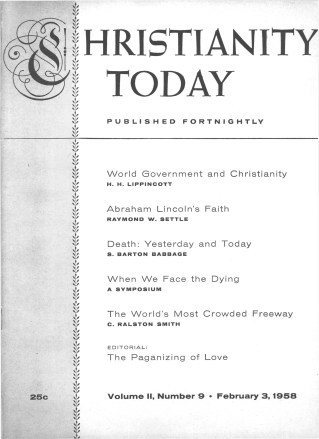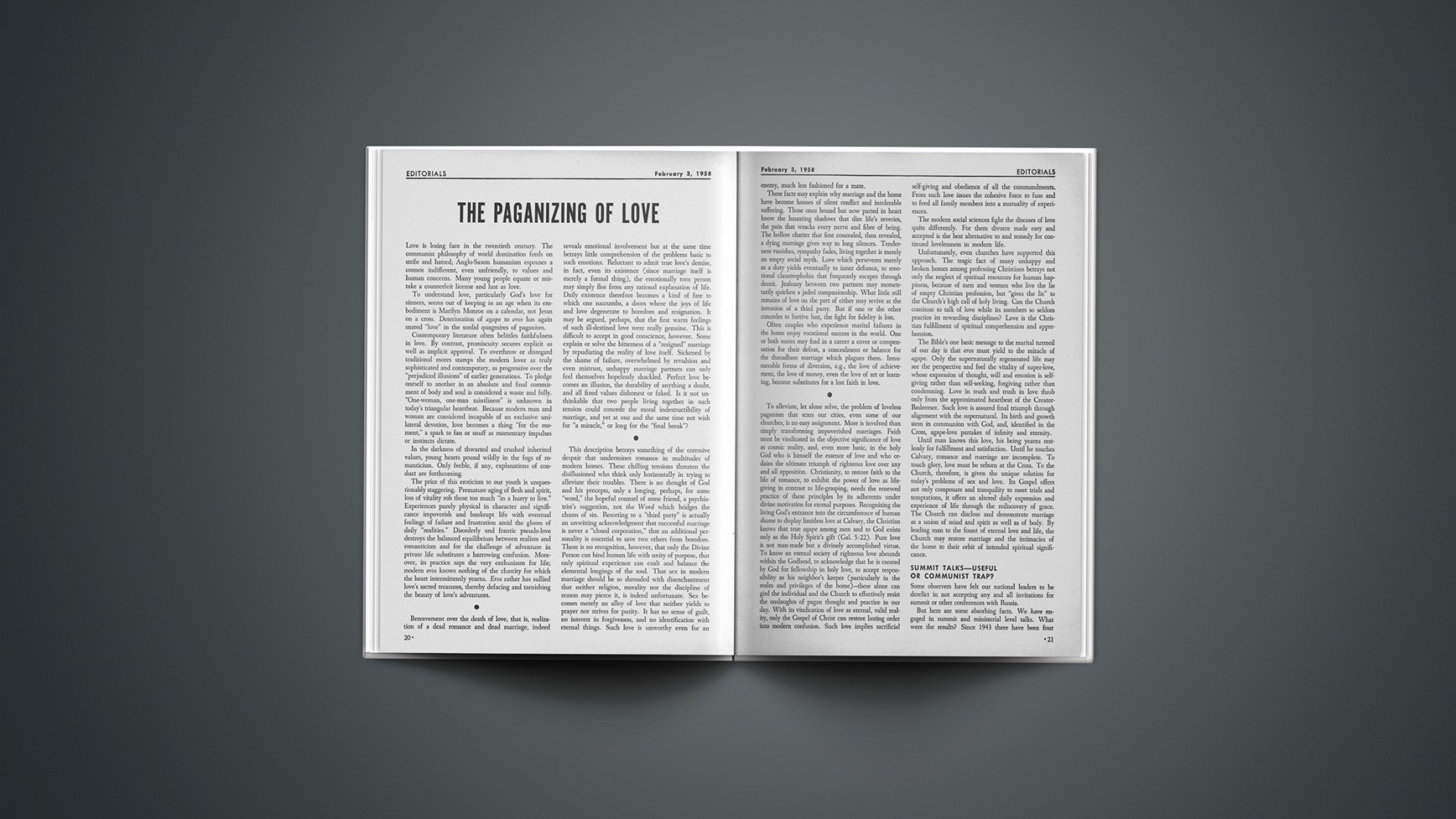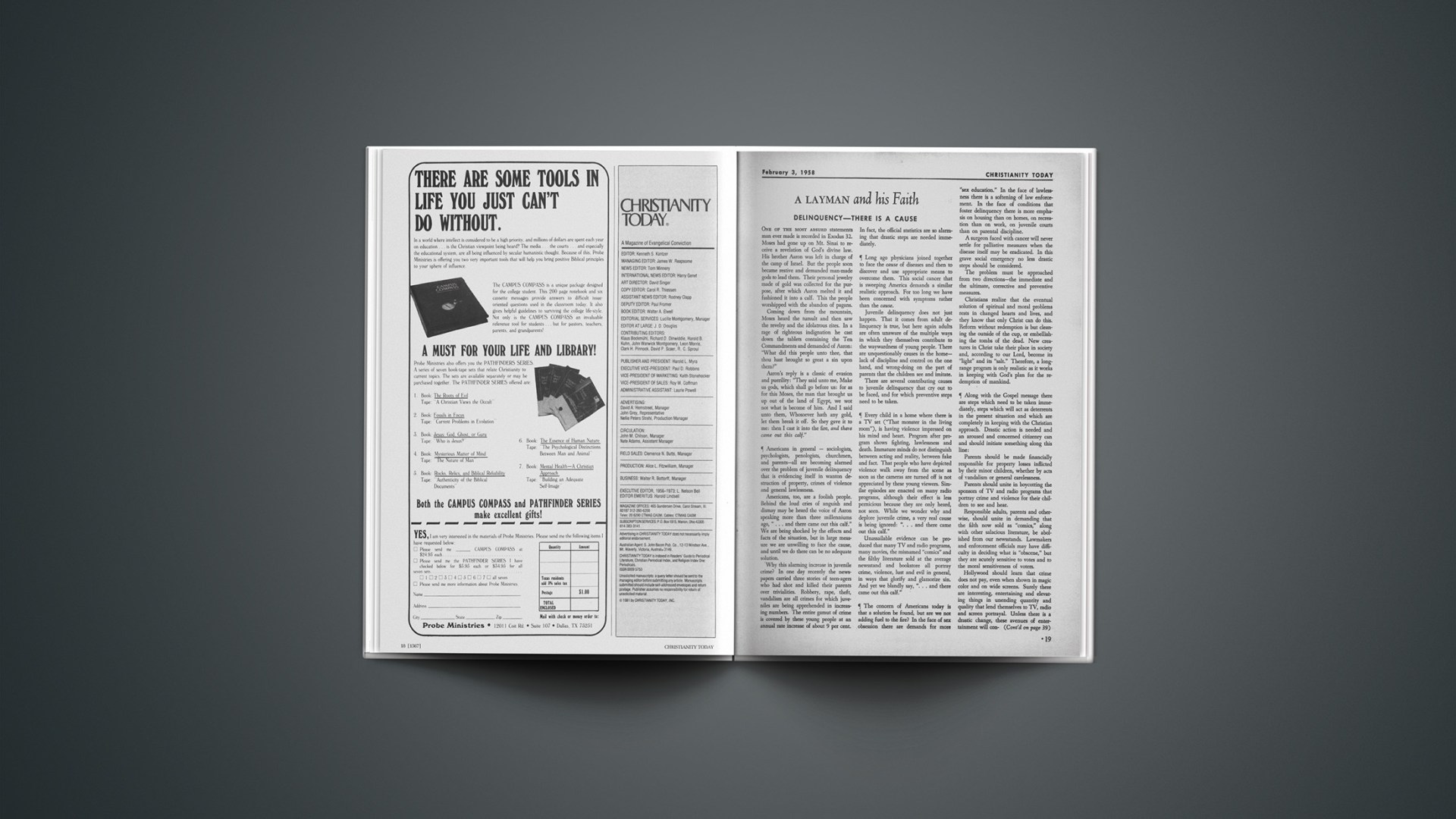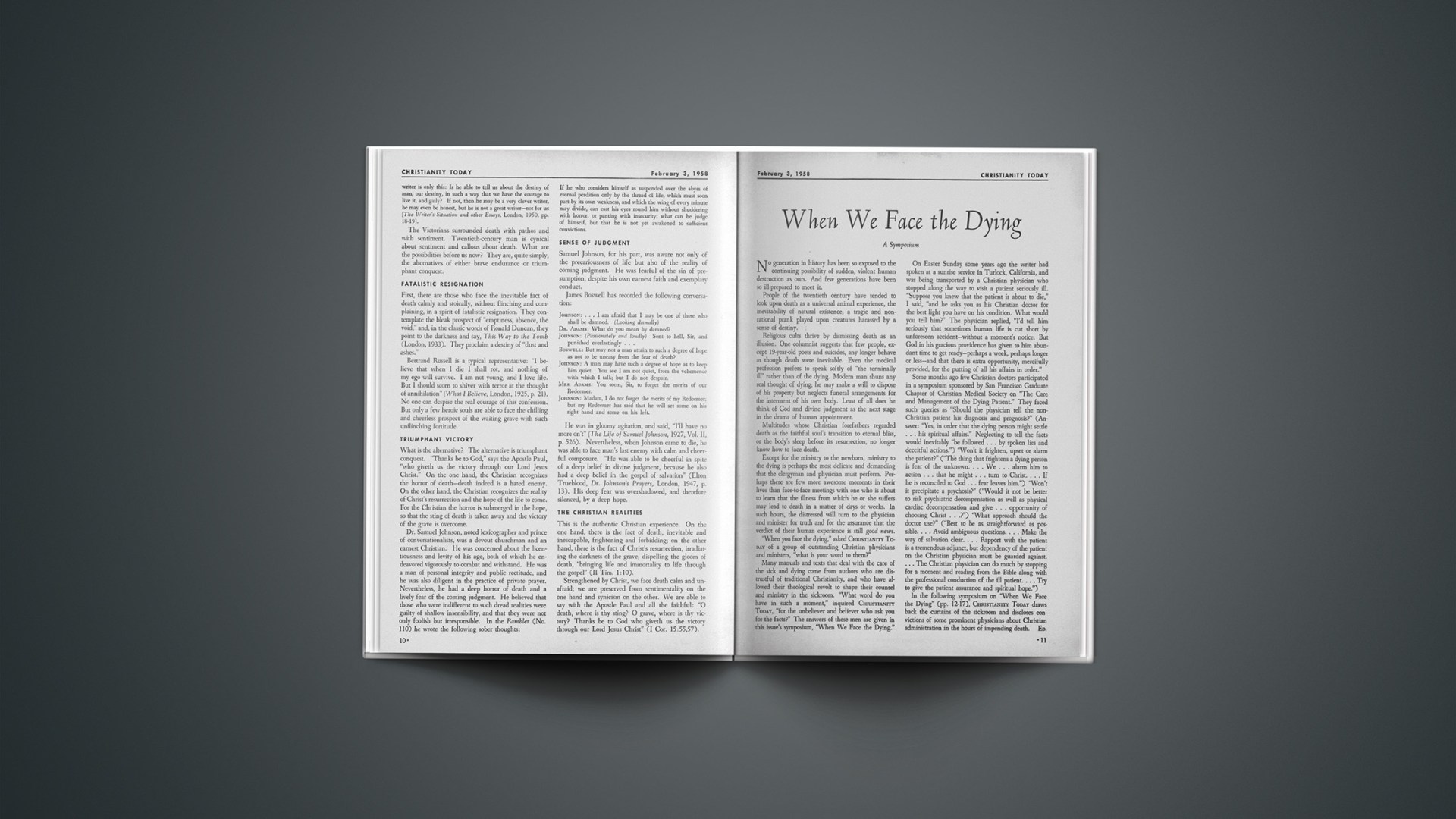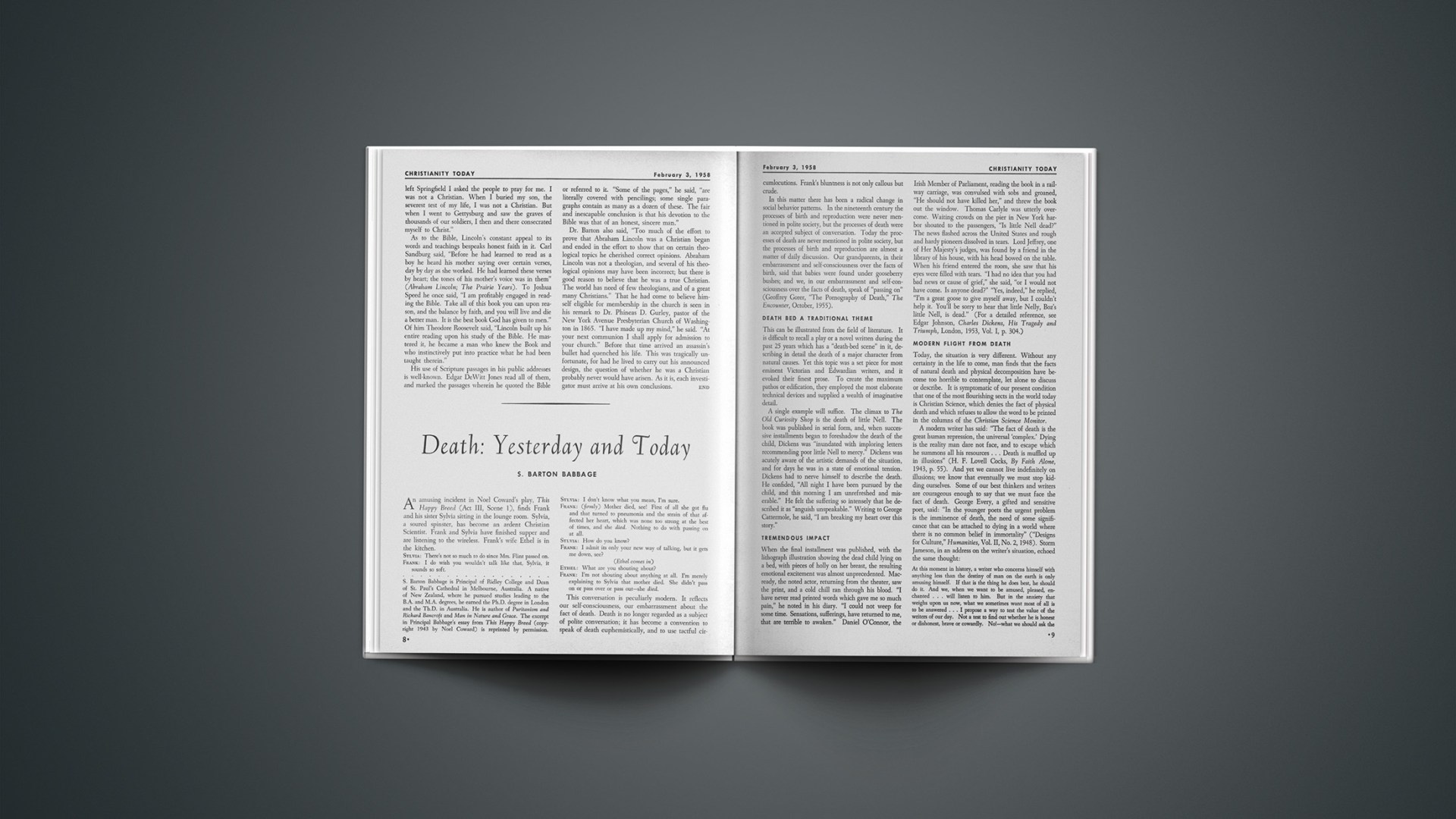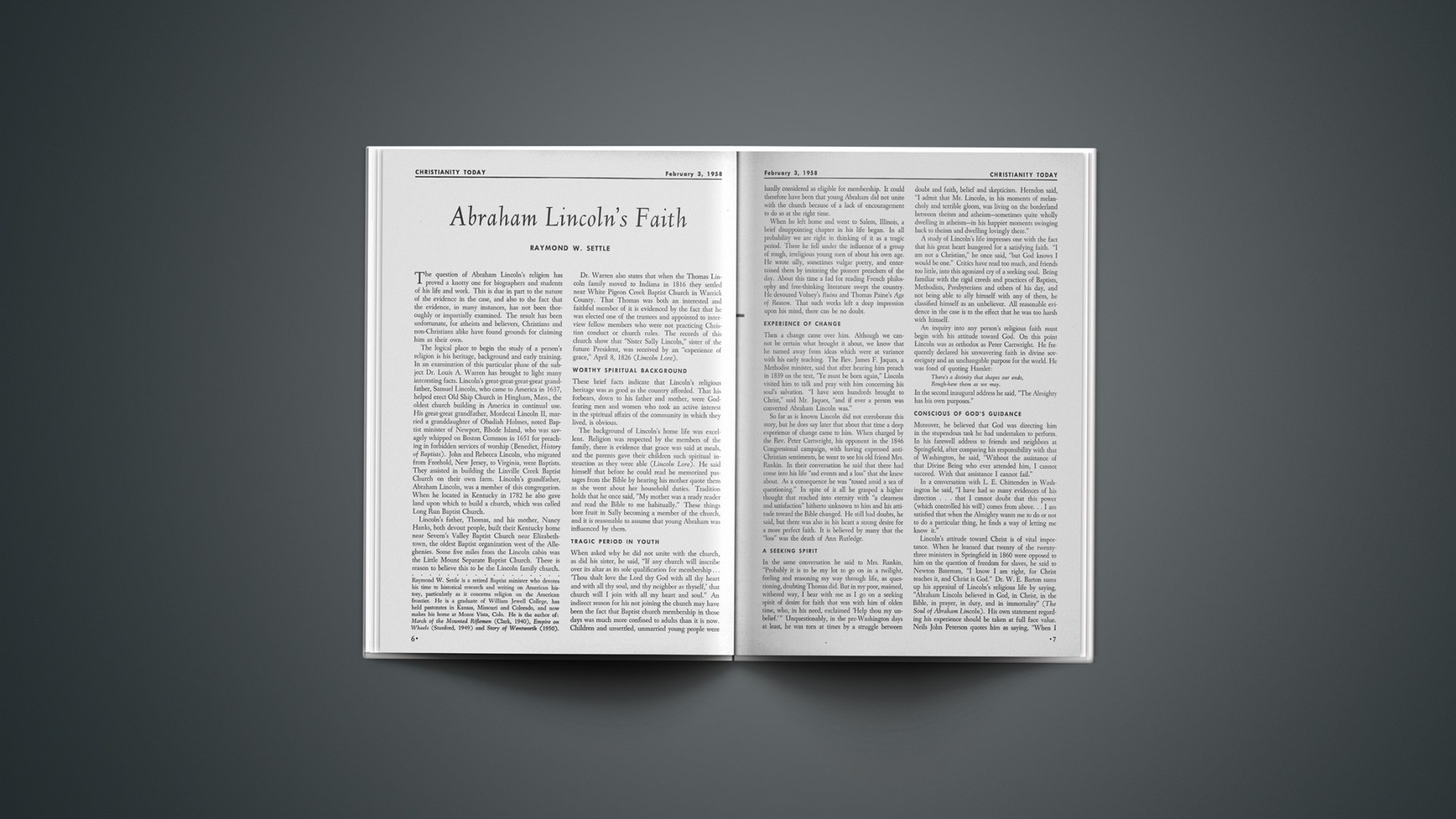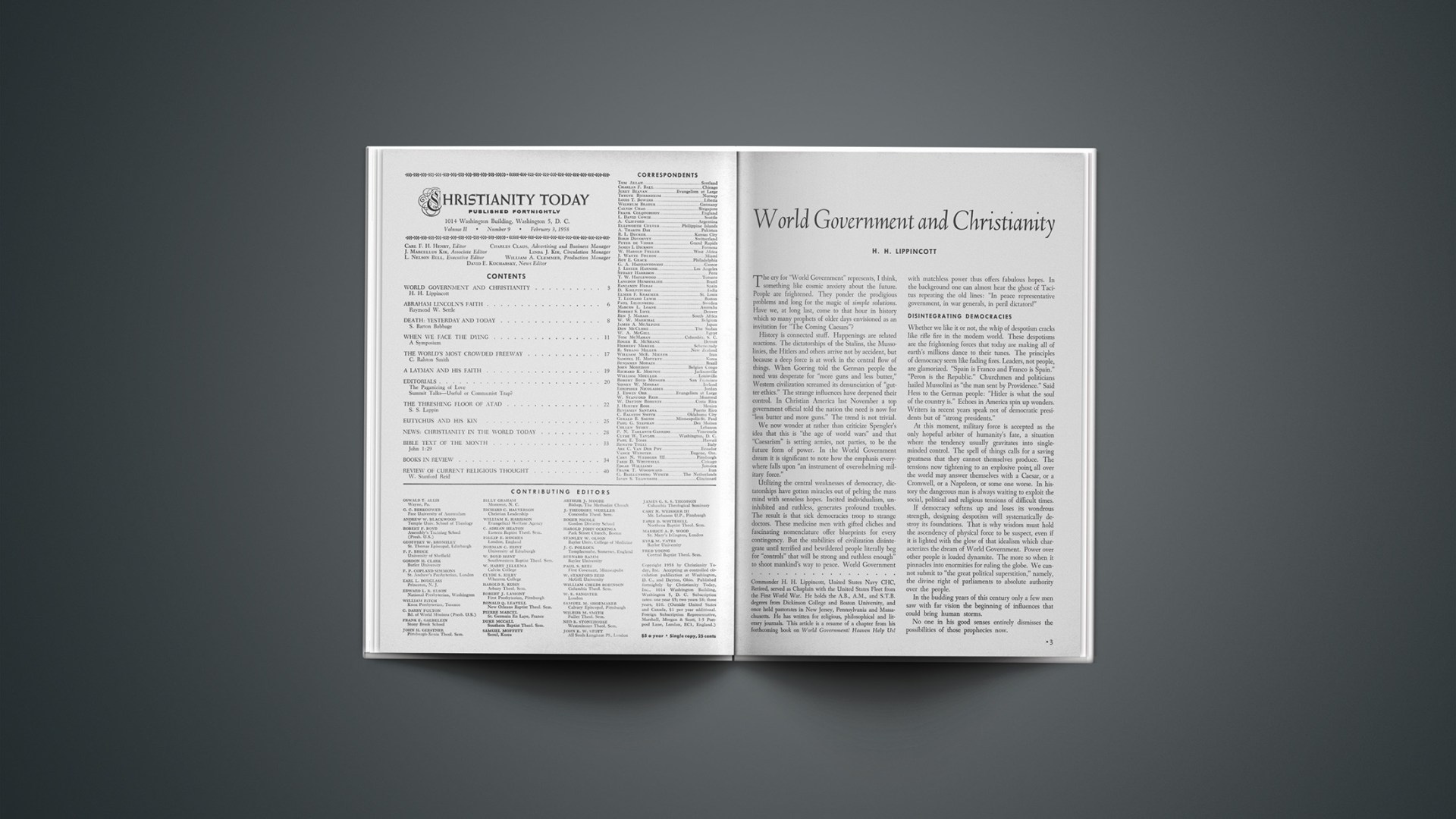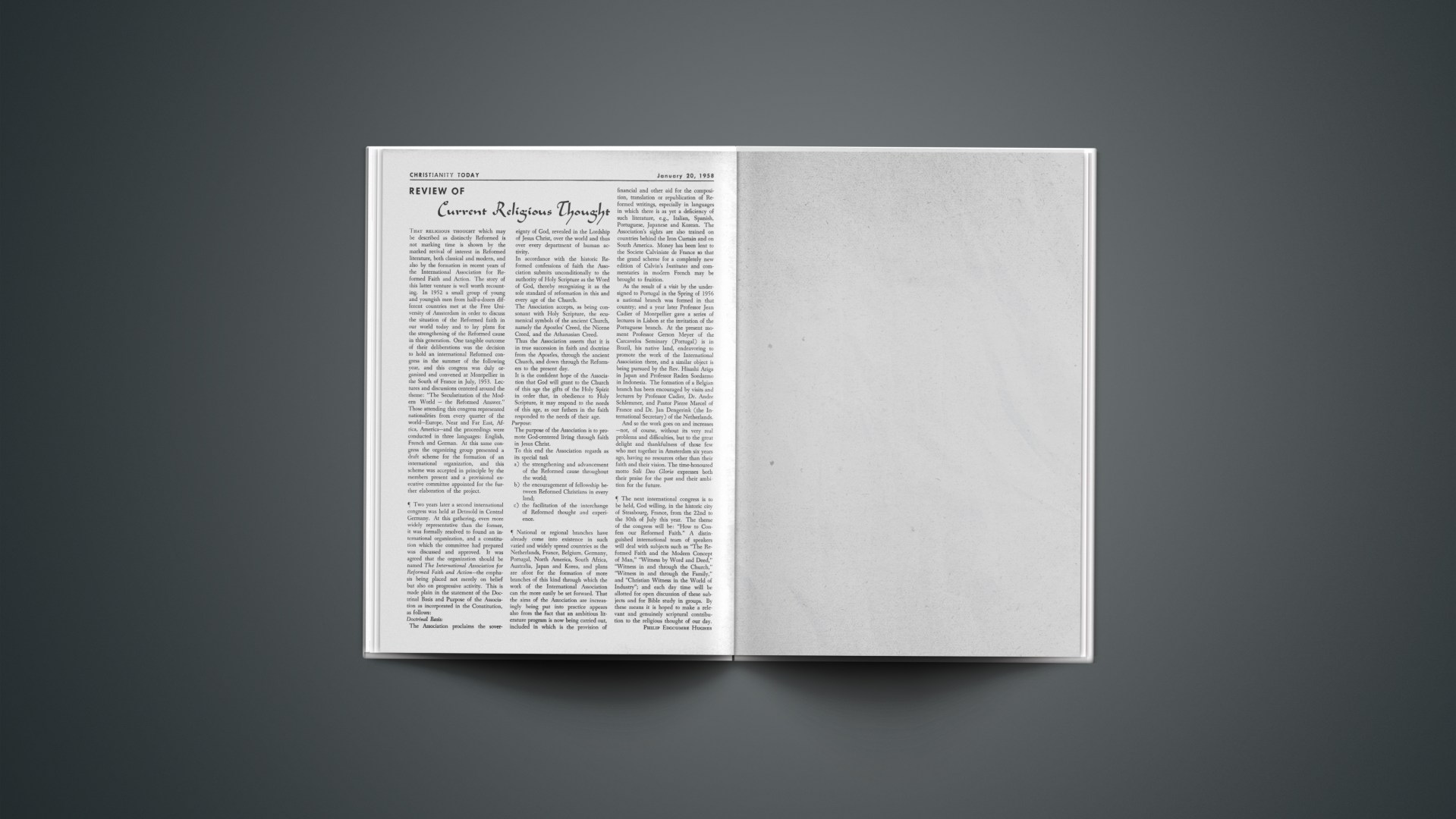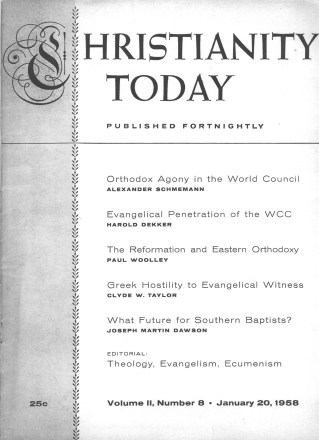And they came to the threshing floor of Atad, which is beyond Jordan, and they mourned with a great and very sore lamentation, and he [Joseph] made a mourning for his father seven days.”
The account of Genesis 50:10 is the story of the death of a parent, a Patriarch who had given to his children the blessings of a nation. And it is the scene of a passionate and most beautiful reunion among lost and almost forgotten members of a great family.
Joseph and the others of his family had been in Egypt before this occasion; but at the request of Jacob, he and the other sons had taken the father back to the homeland for burial. They had left behind the “little ones and the flocks and herds,” in the land of Goshen, and Joseph, leader of the group, had taken with him “all the servants of Pharaoh, the elders of his house, and all the elders of the land of Egypt.” But when at last they entered the borders of Canaan, they stopped at a level spot of ground called the threshing floor of Atad, and there together they mourned and wept.
Reunion In Bereavement
What a season of reunion, repentance, reminiscence and regret that must have been. The eventful life of Jacob had come to a quiet close. And the days of the years of his sojourning had been a hundred and thirty years. But what years! “Few and evil have been the days of my life,” he had said. Self-centeredness and regretfulness in youth, unhallowed dealings with Esau his brother, questionable business practices in later life, and that mysterious night of wrestling with the angel and meeting defeat; that reconciliation with Esau, and those ceaseless quarrels and intrigues of a large family, two mothers and the jealousies between their sons—and in all these relations, he had shown preference and partiality rather than justice even among his own. But notwithstanding all this, his name had been changed from Jacob (supplanter) to Israel (prince with God), and the priceless heritage of the covenant with Abraham had been committed to him.
The Influence Of Jacob
To the moment of his last breath, he had held sacred the traditions of an honored ancestry. Beginning with Reuben, his firstborn, and on to Joseph and Benjamin, Jacob had spoken prophetic words and affectionate blessings. And then, “when Jacob had made an end of commanding his sons he drew up his feet into the bed and breathed his last and was gathered to his people.”
What recollections, what suppressed emotions, what agony of heart and self-reproach must have been theirs as they had made their slow return over the wilderness way! What a contrast—the inward emotions of twelve men going “back home” to bury father, to the outward pomp and pageantry which they had known among Egyptian nobility. But pent-up grief and remorse must presently have time and place for expression. And so, after crossing the border into the homeland, they came to the threshing floor of Atad, and there they paused and “mourned with a great and very sore lamentation.”
This was not the end, however, of Jacob. He was now Israel and father of that distinguished race, “the children of Israel.” And though he was embalmed and ready for interment, he was but to make his way through the generations of the covenant down the centuries of time. Not one of the mourners at the threshing floor could have sensed the far-reaching significance of Jacob’s blessings and prophecies, nor even have imagined what the goal of their own future journeyings might be. And we cannot fathom, even today, the meaning or mystery of these things.
Truly, says the psalmist, “The lord hath chosen Jacob,” but truly, declares the writer of Hebrews, “whom the Lord loveth he chasteneth.” The deep distress of that pause at the threshing floor was but a forecast. Nehemiah, yet to be born, would “sit down and weep certain days over the desolation of Zion.” There would be “a voice from Ramah, Rachel weeping for her children and would not be comforted for they were not.” The hymn of a later day would recall how the exiled remnant, their harps hung on the willows by Chebar, “wept when they remembered Zion by the rivers of Babylon.” Like David and his followers at the ruined city of Ziklag, the strange pilgrimage as they have come down the centuries “have wept until they have no power to weep more.” And wandering tourists may still see today the “wailing wall” at Jerusalem.
There is no end, even yet, of that sorrowful procession. What Longfellow wrote of the nameless dead in the Jewish Cemetery at Newport has ever been and still is true of that noble race:
Pride and humiliation, hand in hand
Walked with them, through the world where ’ere they went,
Trampled and beaten as the sand
And yet unshaken as the continent
All their lives long with unleavened bread
And bitter herbs of exile and its fears
The wasting famine of the heart they fed,
And slaked its thirst with the Marah of their tears.
It was the Apostle Paul, “an Israelite, of the seed of Abraham, of the tribe of Benjamin,” who said, “if ye be Christ’s then are ye Abraham’s seed and heirs according to the promise.” The distinguishing characteristic of Abraham was his faith. Little did it matter, the racial relation or family blood tie, the physical characteristics or ritual performances. The true children of Israel were to be known by a trusting faith in God, a faith like that of Abraham who “believed God and it was counted to him for righteousness.”
Death And God’S Providence
One wonders, does that inheritance to sonship in Christ carry with it disciplines as well as blessings from God in the attaining of a glorious destiny? Can it be that even death and its sombre shadows has a place in the providence of God? Must the “household of faith” bear its portion also of the sorrows which were suffered by that ancient family at Atad? Are human families held together by hardships and heartaches as well as by natural affection and seasons of joy?
Certain it is that in the present world order every household comes some time or another to its day of weeping and then to after-days of melancholic reflection. Father goes from us, or mother it may be, or others whose lives have been intertwined with ours by nature or by deeper ties of friendship. We had not thought it could happen to us. But it has been happening all around us, and we have been so busy or so occupied with our own interests that we have not paid heed until too late. How differently would we have done had we but known and understood those crises that come to life. Hitherto our vision has been obscured in petty things; now we begin to discern, though dimly still, life’s hidden and mysterious meanings.
Memory Of A Great Past
Pausing at the threshing floor, as death requires each family to do from time to time, there suddenly comes to memory deeds of past days. We see that elder brother in his true stature now, and we recall how his kindly counsel was so ruthlessly set aside. And then we remember our passionate desires to retaliate or “get even.” How senseless, how puerile, and how needless they all were! Father and mother—what pains and anxieties we caused them. In the midst of their busy lives, they were but seeking to pass on to us the treasures of righteousness and integrity. And we, the “chosen seed of Israel’s race” had not understood them then, but now with our hearts made tender by bereavement, we see what they meant.
Two men, brothers who had prospered abundantly in the world, returned home to bury their aged father. They were to divide the old farm and build their dream houses, each on the allotted acreage as they had previously planned. The old house was to be torn down, and the two of them were busily engaged at work.
“See here,” said the one inside to the other outside, “see how thin these floor boards are by the fireplace?”
“Why is that, I wonder,” said the other, coming in.
“It is where father used to sit in his rocking chair reading the Bible.”
There was a stillness between them for some moments, and then, in the midst of the rubble and wreckage, one of them spoke …
“John,” he said in a hushed voice, “we ought to kneel here. We ought to give thanks for such a father as we had and pledge ourselves as we’ve not done before to the service of his God.”
The two of them knelt together, and in reverence they prayed for the first time in their adult lives to God in the name of the Christ whom their father had tried to serve.
Threshold Of The Unseen
We today see much by way of backward glance. We are joint-heirs with that ancient family to the treasure of faith which they were to bear back from Egypt to “Canaan, beyond Jordan.” To that strange camping party, death had been but a tragic pause on the long and sorrowful journey of a Syrian family back to the homeland and family burial place. But it also had been a promise and purpose of God, unrevealed to them and perhaps to us even now. We are ever moving slowly and toward an unseen glorious goal. And by means of our humble workaday lives, we are moving there even in spite of petty human faults and failure. Truly the ways of God are past finding out:
We have but faith—we cannot know,
For knowledge is of things we see,
And yet we trust it comes from Thee
A beam in darkness; let it grow.
What simplicity of life had these pastoral peoples of long ago! How natural to us, even in our day, were their human impulses, their jealousies, their enduring rancors, and their attempted retaliations! Still, underneath all these, was a faith and a love, a spiritual compassion given them by God when man “became a living soul.” And such power of tenderness in Jacob’s family, such power of faith and love which they expressed is in our families and ourselves when we exercise it, believe, and have the patience to wait upon God. We live on the threshold of an unseen world of which we are only dimly conscious. We cannot pass the mystic border line now, though we can come near. And we do come near when we push aside the distractions and confusions of this world to come to the threshing floor of Atad and mourn together for one we love. We need death; we need to see the still form, the closed eyes, and the folded hands of some dear one, for it restores to us our own kinship and a consciousness of that other life.
This life, we know, is like a passing cloud. Shall we ever see it again? Or it is like a shepherd’s tent, set up yesterday and taken down today. Will it ever be set up again? A tree cut down may sprout again and grow, but if a man die will he live again? David said, after his child had died, “He cannot come to me, but I can go to him.”
Perhaps then, it was a design of God’s, that when we saw death we would see more clearly life. Or that by the terrible “awakening” shock of death we might better come to know those about us and even ourselves. Sorrow reveals the depth of our natures; and, though fitting tributes and prayers, flowers and music may be but little consolation in moments like these, we loved ones who follow toward that grave in pleasant weather will be to each other effectual and sustaining strength in meditative after-days. At the threshing floor of Atad, we do not know the things to come in days ahead. But thank God, none of us again will ever be the same. Death and mourning have touched our spirits. And in the providence of a wise Creator, this is what we needed. “Weeping may endure for the night but joy cometh in the morning.”
Dawn Of A New Day
But centuries pass now since that incident at Atad, and the world sees the dawn of a new day. The kingdom of God has come at hand. Someone is walking by. He pauses, caresses a wayside flower, and then notices a little bird obviously trodden under foot. For a moment there he gives loving attention to these last and least of creations. But a little later, he is taking over and restoring to life the limp form of a little maid. At another time he is stopping a funeral procession and sending a weeping widow home with a son reclaimed to life. One who himself weeps at the grave of his friend Lazarus, proceeds to call that one forth from the tomb and then turn to comfort the others who weep. And, miracle of miracles, this same Man voluntarily lays down his own life and after three days takes it up again!
Death Will Be Conquered
Blessed prospect! When the day comes that all nations will have heard this gospel of the kingdom of God, then we shall see “the end” (of an age). Then we shall remember no more the threshing floor of Atad. That will all be forgotten, for the last enemy, death, will have been forever destroyed. And “a great voice out of heaven” (Rev. 21:3) will cry, “Behold, I make all things new!” (Rev. 21:5) … “the tabernacle of God is with men, and he will dwell with them, and they shall be his people, and God himself shall be with them, and be their God … and God shall wipe away all tears from their eyes; and there shall be no more death, neither sorrow, nor crying, neither shall there be any more pain: for the former things are passed away” (Rev. 21:3–4).
And for those of us who live and dwell in the time between Jacob and that day to come, we have the assurance that “I am the resurrection and the life and he that liveth and believeth in me shall never die” (John 11:25). “For if we believe that Jesus died and rose again, even so them also which sleep in Jesus will God bring with him” (1 Thess. 4:14). “… then shall be brought to pass the saying that is written, Death is swallowed up in victory. O death where is thy sting? O grave where is thy victory” (1 Cor. 15:54–55)?
S. S. Lappin is a former public school teacher who served 17 years in rural Illinois pastorates. He holds the M.A. from Bethany College, where he taught Homiletics and Pastoral Theology. He has served as Editor of The Christian Standard.

